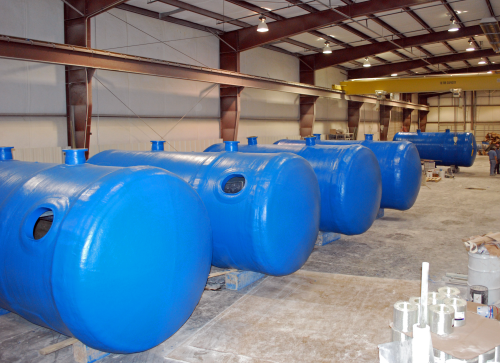
The filters are in place to keep the water clean throughout the Atlantis The Palm, Dubai, one of the largest water-themed resorts in the world.
The horizontal filters are 1.5 m in diameter and 3.7 m long. Each filter has an internal manifold made of polyvinyl chloride (PVC). Water is pumped into the filters and conveyed under pressure through a bed of sand filtering media , trapping dirt and particles. The filters are designed to withstand pressures up to 100 psi.
Appalachian Plastics Inc (API), Glade Spring, Virginia, USA, manufactured the horizontal, cylindrical components for the filters by winding resin-impregnated glass fibre reinforcement on a rotating mandrel. To achieve the properties required for the filters API turned to resin technology from AOC. The large fibre reinforced polymer (FRP) composite housings for the filter systems have been produced with Vipel® F010 bisphenol A epoxy-based vinyl ester. The resin is certified for API use in filters by NFS International, an independent, not-for-profit organisation that certifies products and writes standards for food, water and consumer goods.
The fibre reinforcement was a combination of continuous roving for hoop strength and stitched fabric for axial strength. The end caps for each filter were open moulded of chopped strand mat and woven roving. The interior surfaces of all composite components used C-veil to create a resin-intensive corrosion barrier that protects the reinforcing fibres, providing a seal against internal pressure.
API General Manager Allen DeBusk, says the Vipel F010 resin processes well for both winding and hand lay-up operations and is backed by good technical support. DeBusk also adds how the toughness and durability of Vipel F010 vinyl ester helps resist cracking and crazing: ” To meet requirements for corrosion resistance, the filters could be made with an isophthalic polyester resin. But isopolyesters are brittle and develop surface cracks under the cyclic action of the filtering process. This does not affect structural performance but encourages unwanted algae to grow.”
The filters were supplied by Neptune-Benson, a specialist in filtration systems based in Rhode Island, USA.
75 ISO shipping containers were required to transport the filters from the USA to Dubai.






